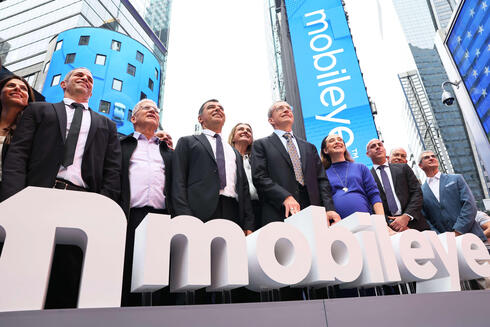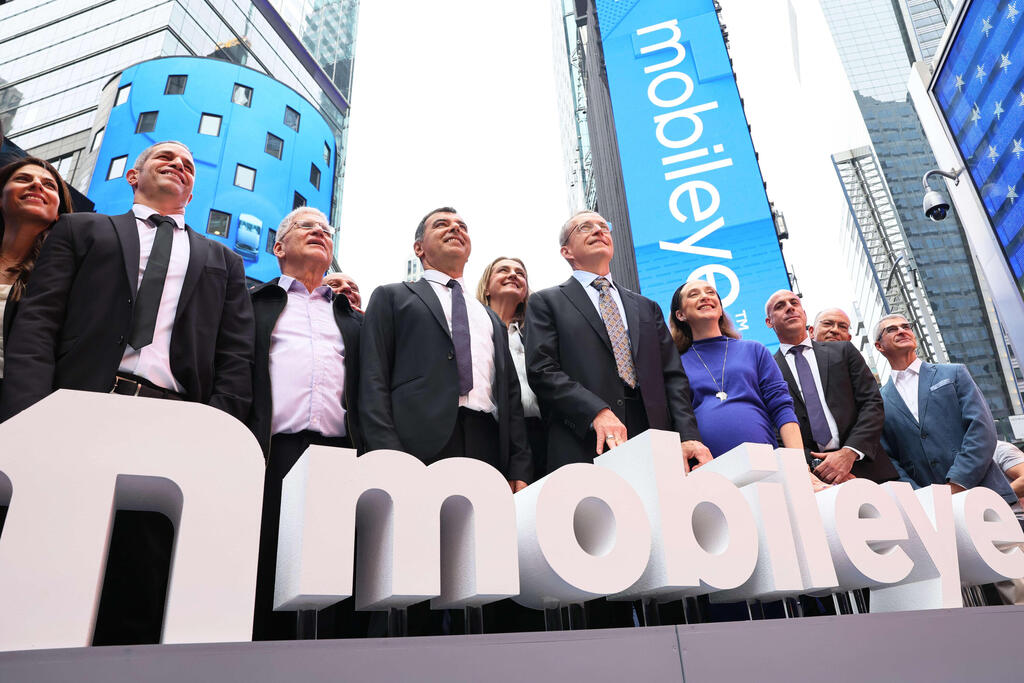
Mobileye’s China gamble backfires: How chaos in the world’s largest car market cut its value by two-thirds
Dependence on China has turned into a nightmare for the autonomous vehicle leader.
When it rains in China, the whole world gets wet. The Chinese car market, the largest in the world and the holy grail for all players in the industry, is undergoing a shake-up. On one hand, it is suffering from a slowdown due to the weakening local economy, causing Chinese consumers to spend less. As evidence, vehicle sales in the local market decreased by about 3% in June. On the other hand, the escalating trade war between China and the United States, as well as Europe, is beginning to make exports more difficult.
In July, the European Union dealt another blow by raising tariffs on Chinese-made electric cars, which immediately led to a sharp double-digit drop in sales of brands that are also well-known in Israel, such as MG and BYD. These high tariffs, justified by the heavy subsidies provided by the Chinese government to its automotive industry, are expected to harm not only Chinese brands but all vehicles produced in the country—including those from Tesla and Volvo.
One of the companies most affected by these developments is Israel’s Mobileye. The company's stock, which until recently held the title of the Israeli company with the highest market value, has plunged by 67% since the beginning of the year, dropping to a value of $11.5 billion. This is lower than the $15 billion that Intel paid for it in 2017 and is largely a result of the changes in the Chinese car market. Mobileye, founded by Prof. Amnon Shashua and Ziv Aviram, is a pioneer in the field of autonomous vehicles. It sells systems that make driving almost autonomous today, mainly to car manufacturers and suppliers of components for car manufacturers (Tier 1). Since the end of 2023, the company has been suffering from a significant decline in its business performance, which is unrelated to the war in Israel but is primarily due to the challenges in the Chinese market. Mobileye has already reduced its forecasts several times, and according to the latest projection provided about a month ago, it is expected to end 2024 with revenues of only about $1.6 billion—around $1 billion less than the original forecast of $2.6-2.9 billion. This represents a profound and unusual misstep for an established public company.
In recent years, Mobileye has become increasingly dependent on the Chinese market, which also fueled its rapid growth, following contracts with many manufacturers and well-known, prestigious brands such as Zeekr and Polestar—until it all came to a screeching halt. In the first half of 2023, a 100% increase in the supply of vehicles equipped with driver assistance systems (ADAS) developed by Mobileye was recorded in China. However, during the first half of this year, Mobileye's revenues from sales in China shrank from $269 million to $199 million.
In recent months, Mobileye has discovered the volatile and opaque nature of the Chinese market. After accelerated growth came the painful fall. This is no longer just a one-off accumulation of stocks following the disruptions caused by the Covid-19 pandemic, as Mobileye initially tried to reassure investors, but a reflection of deeper structural issues. Dependence on the Chinese market has made it difficult for Mobileye to provide reliable forecasts to its shareholders, who have responded by massively selling off shares, cutting more than two-thirds off its peak value. "Our ability to provide accurate forecasts for the rest of the year is challenged by the volatility in China. We lowered the forecasts for sales volumes in China due to the uncertainty surrounding the dynamics in the local market," Shashua told investors after the second quarter of 2024 also ended with disappointing results and reduced forecasts. According to Shashua, salvation will not come from other markets either, due to the tariffs imposed on Chinese cars in Europe and the United States. Shashua, who is considered one of the most influential figures in the world of autonomous vehicles, does not foresee stabilization in the Chinese automobile market even in 2025.














